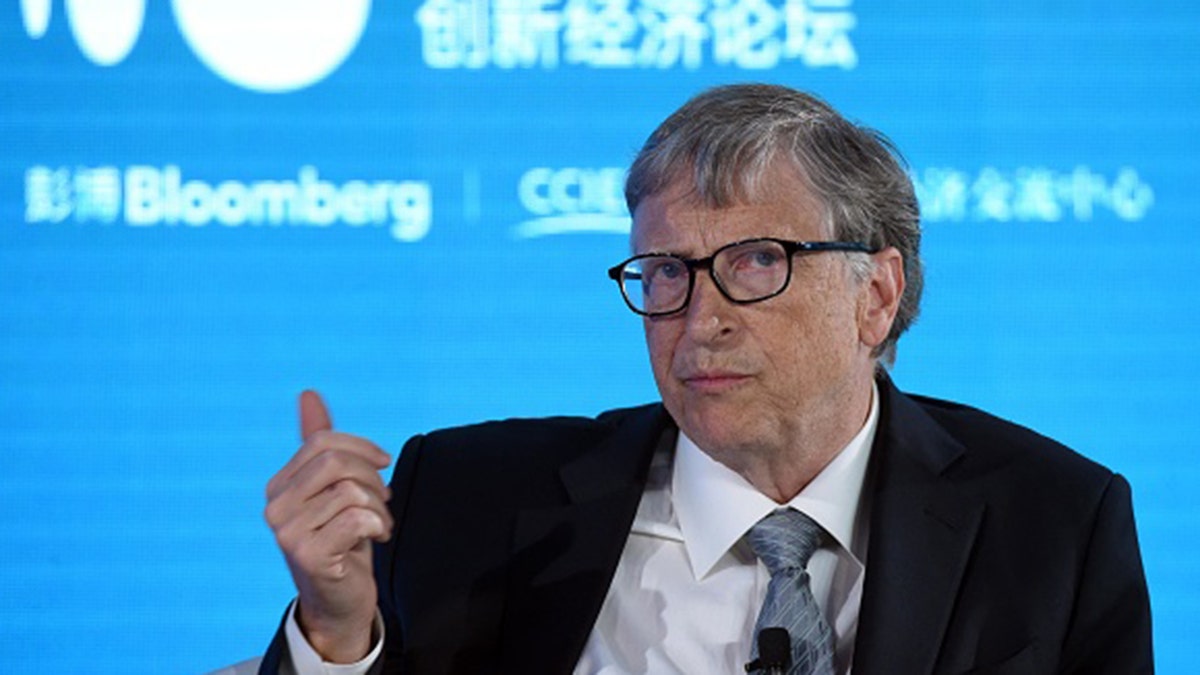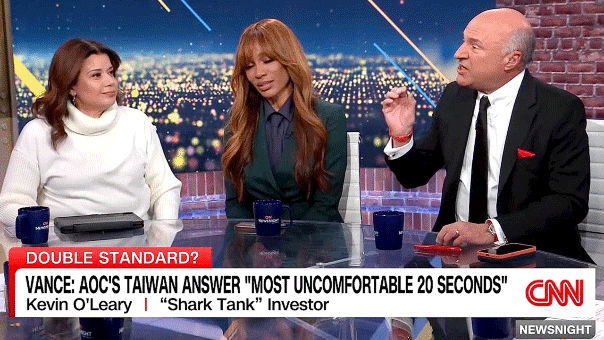Here's what Bill Gates' big land grab could do to our market
Rep. Dusty Johnson, R-S.D., weighed in on Microsoft co-founder Bill Gates' purchase of several thousand acres of farmland across multiple states on 'The Ingraham Angle.'
Bloomberg published a report detailing Bill Gates' involvement in convincing Sen. Joe Manchin, D-W.Va., to support the White House and congressional Democrats' Inflation Reduction Act, a climate change and tax bill that according to the nonpartisan Congressional Budget Office and the Wharton Budget Model will not actually reduce inflation.
The piece, titled "Bill Gates and the Secret Push to Save Biden’s Climate Bill," was published as part of Bloomberg Green, a climate change wing of the publication.
Bloomberg reported that when Manchin "slammed the brakes on legislation to combat global warming," that is "when billionaire philanthropist and clean-energy investor Bill Gates got on the phone with Senate Majority Leader Chuck Schumer."

BEIJING, CHINA - NOVEMBER 21: Bill & Melinda Gates Foundation Chairman Bill Gates speaks during 2019 New Economy Forum at China Center for International Economic Exchanges (CCIEE) on November 21, 2019 in Beijing, China. 2019 New Economy Forum themed on 'A new community for the new economy' is held on November 20-22 in Beijing. (Photo by Hou Yu/China News Service/VCG via Getty Images)
"One of the world’s richest men felt he had to give one of the nation’s most powerful lawmakers a little pep talk," Bloomberg reported glowingly.
Bloomberg reported that "Gates was banking on more than just his trademark optimism about addressing climate change" and that "he has quietly lobbied Manchin and other senators, starting before President Joe Biden had won the White House, in anticipation of a rare moment in which heavy federal spending might be secured for the clean-energy transition."
"Those discussions gave him reason to believe the senator from West Virginia would come through for the climate — and he was willing to continue pressing the case himself until the very end," they reported.

A wind farm in Glenrock, Wyoming. (AP)
BIDEN SLAMMED FOR INFLATION REDUCTION ACT: ‘DARK DAY FOR EVERYDAY AMERICANS’
"Gates started wooing Manchin and other senators who might prove pivotal for clean-energy policy in 2019 over a meal in Washington DC," Bloomberg – founded by billionaire and failed presidential candidate Michael Bloomberg – reported.
Bloomberg's reporting admitted that Gates's foundation "has sunk at least tens of millions into green cement startups such as Ecocem, Chement and Brimstone" but that "none have yet reached commercial scale."

In this image from video, Bill Gates speaks during the White House Climate Leaders Summit, Friday, April 23, 2021. The White House is bringing out the billionaires, the CEOs and the union executives Friday to help sell President Joe Biden's climate-friendly transformation of the U.S. economy at his virtual summit of world leaders. (AP Photo) (AP)
Blooomberg reported that Aquion, a start-up Gates backed, would benefit from government subsidies in the Inflation Reduction Act.
Critics of the legislation argue that it is falsely branded, will harm the economy, and further increase government intervention in the economy in favor of some industries over others.










































